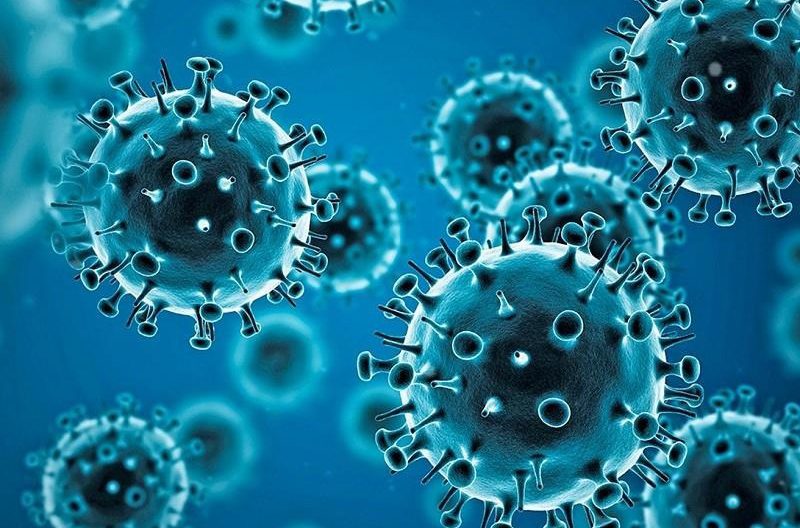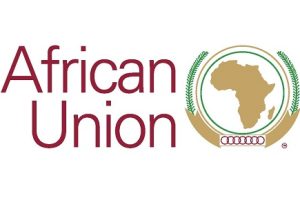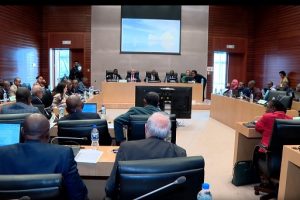
It is to be recalled that the EU and some countries have put travel restriction on people who got vaccinated with specific anti COVID 19 vaccines like the Indian made astrazeneca. But other than posing threat on the free movement of people, especially in Africa, the restriction is not going to prevent these countries from the pandemic.
According to Dr. Aschalew Worku, internist, pulmonologist and intensive care specialist, a vaccinated person, whatever the brand of the vaccine, is likely to transmit the virus to others. This means the travel restriction on people vaccinated with a specific brand of vaccine would not garner the desired result.
He elaborated that countries have the power and rights to approve and disapprove vaccines or apply their own laws in their land. But, that is not the appropriate solution to control the pandemic, he added.
Applying vaccination as a means of discrimination in international travel is totally unfair and unacceptable.
“Countries have their own laws to register and license any medications including vaccines,” Dr. Aschalew said. But, banning travelers due to the type of vaccine they take or by any other vaccine related issues is totally unfair and unacceptable.
In the first place, the only standard for travelers must be having latest COVID-19 test free from the pandemic. If countries apply to make vaccination as one measure, it is important to consider all WHO recognized and licensed vaccines manufactured by any company, he added. “But for me, the criteria for travelers must be only to be free from the pandemic with having lasts negative result from health institutions,” he added.
To control the problem, it is necessary to apply international standard in this regard mainly to handle the problem, Dr. Aschalew reiterated. Though the laws implementing by countries aims to protect their citizens, these laws must not affect the rights of people from exercising their rights if they fulfill their responsibilities, he argued. The international community should set globally accepted standard to fill such gaps and to remove vaccine related discriminations.
Therefore unless countries work hand-in-hand to limit the expansion of COVID-19 with fair vaccine distribution, the world will remain to suffer from the vicious cycle of the pandemic since the pandemic shapes itself with new variants, Dr. Aschalew said.
He further stated that for the success of world-wide COVID-19 struggle; the developed countries should give attention to help the developing world than focusing only on their own nation especially in vaccination process.
Dr. Aschalew also stated that discrimination of vaccine and unvaccinated people is also unfair especially for international travelers. In this regard, he said, international standard must be applied to exclude vaccine related discriminations.
Since the world found vaccine for COVID-19, ‘Vaccine nationalism’ remains a top agenda. Though the World Health Organization (WHO) urged the world for fair and equitable vaccine distribution, vaccine nationalism is worsening and the vaccination process is very slow in the developing world. Especially in Africa, the problem remains critical and unless the world put solutions, it is tough in Africa to limit the pandemic.
Not only excluding Africa from vaccine, some developed countries also are showing trends to discriminate vaccines administered in Africa, especially the Indian produced AstraZeneca vaccine which almost all African countries are getting access, though with limited amount.
Recently, Xinhua reported that the World Health Organization (WHO) warns the world that ‘vaccine discrimination’ is threatening billions of lives across the globe. Lately, other COVAX partners joined the WHO in warning ‘vaccine discrimination’. WHO has called on countries to recognize all its approved vaccines to avoid developing discriminatory travel systems.
Currently several countries and blocs including the European Union are allowing vaccinated travelers to avoid some COVID-19 restrictions, however Xinhua on July reported, they do not accept all WHO- approved vaccines.
“The EU’s vaccine passport, for instance, only accepts vaccines approved by its own regulator – of which there are currently four. The EU will also not accept doses of the AstraZeneca vaccine manufactured in India, although individual countries do have discretion to adapt the rules,” Xinhua stated.
“Any measure that only allows people protected by a subset of WHO-approved vaccines to benefit from the reopening of travel into and with that region would effectively create a two-tier system, further widening the global vaccine divide and exacerbating the inequities we have already seen in the distribution of COVID-19 vaccines,” a joint statement from the WHO, the Global Vaccines Alliance, the Coalition for Epidemic Preparedness Innovations, and UNICEF warned.
Addressing world leaders at the 76th annual General Assembly of the United Nations (UNGA 76), Ghana’s President, Nana Akufo-Addo said that “Africa is suffering the worst brunt of vaccine nationalism.” The President underlined that something must be done to combat ‘vaccine nationalism’ and to support the African continent along in the race against the COVID-19 pandemic.
President Akufo-Addo further criticized the European Union’s non-recognition of COVID-19 vaccines administered in Africa, The Africa Report reported, which implies that those fully vaccinated on the continent are not considered immunized when they travel to its member states.
“One unfortunate development appears to be the recent measures on entry into some countries in Europe, which suggest that Covishield, the Oxford/AstraZeneca vaccine manufactured in India, is not recognized by these countries. What is intriguing is the fact that this vaccine was donated to three African countries through the COVAX facility,” said Akufo-Addo.
“The use of vaccines as a tool for immigration control will be a truly retrogressive step,” Akufo-Addo stressed adding refusing to recognize the WHO registered and recognized vaccines is unpleasant.
Dr. Aschalew said that vaccines are dominated and monopolized by developed world; hence, vaccine nationalism is already there. He strongly condemns any discriminations related to vaccine.
The vaccine distribution in developing countries is unsatisfactory especially in Africa. In Africa, only 10 countries are vaccinated five percent of their population, though a targeted was set to vaccinate over five percent of each country’s population. This shows that, the vaccine distribution in Africa is too slow and access to vaccine is tough for African countries, he added.
Though vaccination is the only way to limit the expansion and effects of the pandemic, in developing countries, access to vaccine remains tough, he said. In this regard, vaccine nationalism by the developed world is negatively affecting the developing world’s access to vaccine, Dr. Aschalew stated adding “nationalism is not bad by the way, but it must not practiced at the cost of others.” It is normal countries to give priority for their citizens and what happens in COVID-19 vaccine is that but since the problem is global, the solution should be global and countries should cooperate for the solution beyond their borders, he added.
So far, developed countries use or ordered around four billion vaccine doses but the developing countries have only around 600 million doses. This clearly shows the inequality and unjustifiable distribution of the vaccine which is almost excluding the developing countries, he stated.
For Dr. Aschalew, the solution to solve the problem in vaccine related issues is developing the capacity of developing countries and sincerity by the developed world. Not only sincerity, the developed world should also understand the effects of excluding vaccines for the developing world, directly and indirectly it contributes for the vicious circle of the pandemic globally.
According to Dr. Aschalew, as long as the pandemic takes time wherever in the world, it may continue developing new variants. This means, even the developed world that takes all vaccines are not free from threat of another circle of the pandemic, the solution is strengthening global cooperation to control the pandemic, he added. The current way in hand which needs cooperation in fighting the pandemic is working for equitable utilization and distribution of vaccines, he underlined.
In this regard, though the developing world and some regional and international organizations are working their maximum efforts, it needs the sincerity of the developed world countries. “If everyone is not safe across the globe, no one is safe,” Dr. Aschalew reiterated. The world is aware about that and about the limitation in vaccination in Africa, but the response is too poor.
BY DARGIE KAHSAY
THE ETHIOPIAN HERALD OCTOBER 6/2021





